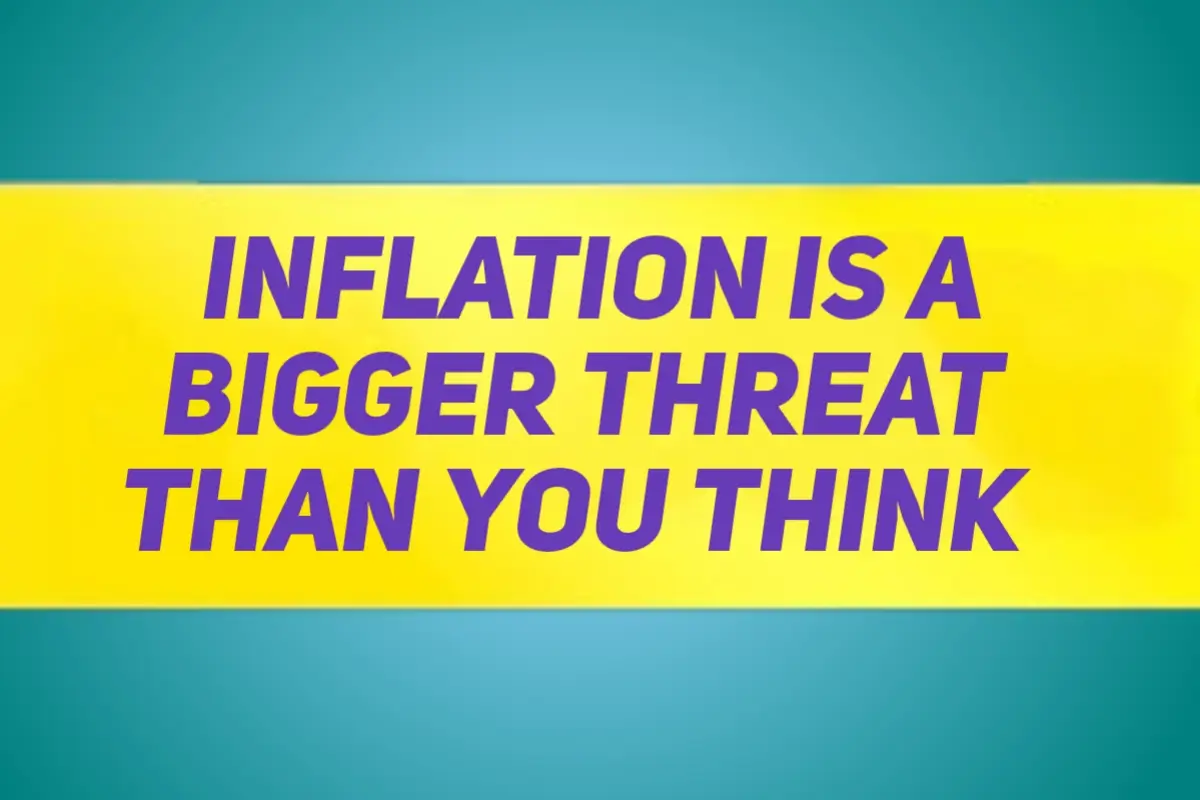
We just got a report stating that inflation is decreasing, but not quickly enough. Many people don’t realize why this is crucial. First off, people are running out of money as savings rates drop. Secondly, higher inflation means interest rates will stay elevated longer, affecting our government, businesses, and spending. Lastly, high inflation is slowing down the economy and making it harder for Americans to find new jobs.
Understanding Inflation Trends
As of now, inflation is around 3.3%, but the Federal Reserve wants it down to 2%. While this doesn’t seem far apart—especially considering inflation was over 9% recently—the real challenge is the “sticky” nature of inflation at this level. If you ask most people, they’ll say inflation is bad. However, the truth is that it depends on who you ask. Inflation hurts those who don’t understand it but benefits investors. Over the last five years, the middle class has been squeezed, while investors have become significantly wealthier.
The Importance of Financial Education
This disparity highlights why financial education is vital. It helps you make informed decisions about your money and benefit from inflation rather than suffer from it. Unfortunately, many people lack this knowledge and often turn to financial advisors. But here’s the catch: many don’t know how much they’re paying in fees.
Understanding Fees
For example, a seemingly small 0.85% fee can cost you more than a million dollars over your investing career due to compounding. So, homework time! If you have a financial advisor or a 401(k), check your expense ratio and see how much you’re paying in fees.
What’s Being Done About Inflation?
Now that we recognize inflation is a problem, what actions are being taken to lower it? The Federal Reserve has primarily raised interest rates and initiated quantitative tightening. However, there’s been a recent change in their approach to quantitative tightening.
The Mechanics of Borrowing
When the government needs to borrow money—like $5 trillion—it can’t always rely on regular people. Often, it turns to other countries or the Federal Reserve. The latter can create money out of thin air, which contributes to inflation as more dollars circulate in the economy.
To combat this, the Federal Reserve has been selling off part of its balance sheet, essentially unloading some treasuries it bought with created money. However, as of June 1, 2024, they’ve slowed this process significantly, raising concerns about future buyers for these treasuries.
Current Federal Reserve Strategy
In summary, the Federal Reserve is trying to cool inflation by raising interest rates, which have remained stable for the past year, and adjusting the pace of quantitative tightening. Keep an eye on July 31, 2024, and September 18, 2024, for key announcements regarding inflation and interest rates.
The Broader Economic Impact
Inflation affects everyday life. Even though inflation is lower than before, prices continue to rise. This affects essential items like groceries and housing, putting pressure on the middle class while wages often fail to keep pace. This reality reinforces the need for greater financial literacy among the public.
Winning Amidst Economic Challenges
Despite the challenges, there are ways to succeed in both booming and struggling economies. Understanding that the economy operates in cycles is crucial. Economic downturns create opportunities, and those who are financially educated are better positioned to take advantage of them.
Building Your Financial Future
Save and Prepare
Building wealth starts with maintaining some cash as a buffer against emergencies and to seize investment opportunities when they arise. You could spot the best investment, but if you lack the cash, it won’t help you.
Invest in Financial Education
Begin your financial education with accessible resources like YouTube. Learn about investing, stock analysis, and how to buy your first rental property. Read books, listen to podcasts, or take classes to improve your understanding of finance.
The Inequity of Inflation
Inflation fundamentally shifts consumption patterns. It forces consumers to spend more while investors see their asset values and dividends rise. This creates a growing divide between the average person and investors.
Choosing Your Path
You can either complain about the system or learn how to navigate it. Understanding financial dynamics is essential to building wealth. By educating yourself and actively managing your finances, you can thrive in this economic environment.
Conclusion
Building wealth is a journey that requires hard work, education, and smart financial management. The initial years may be tough, but with dedication to learning and adapting, you can achieve long-term financial freedom. Focus on spending wisely, earning more, and investing strategically to secure your future.
Inflation may pose challenges, but with the right knowledge and preparation, you can find opportunities and succeed in any economic climate. Understanding how the system works is crucial to your financial success.
